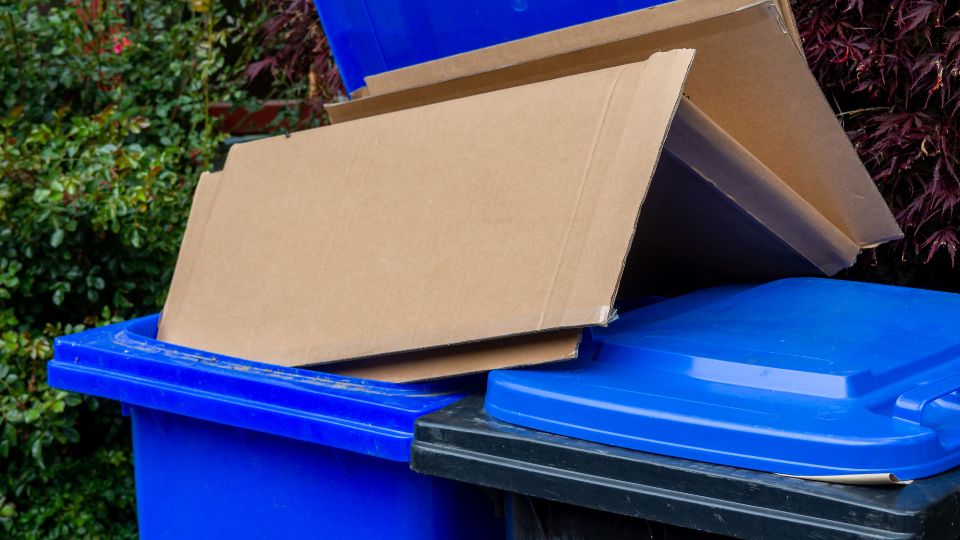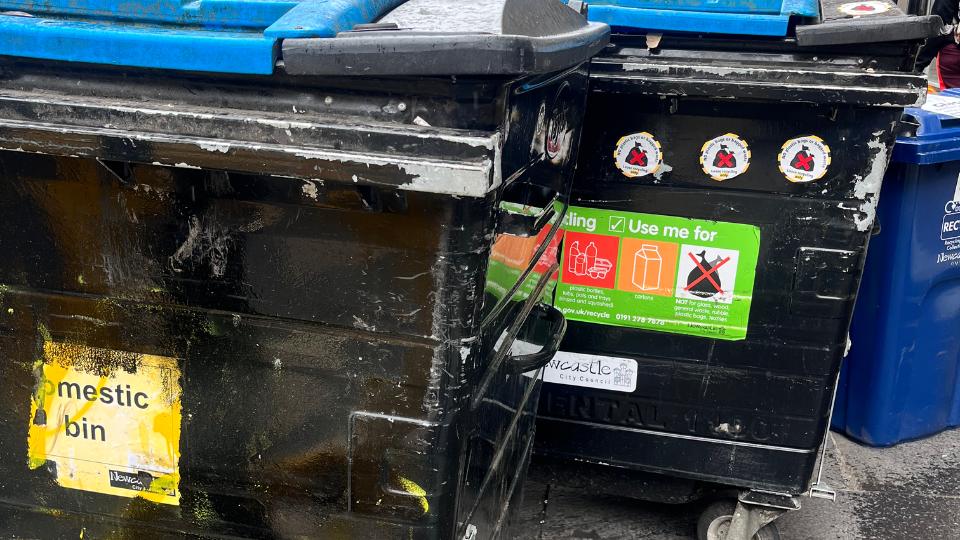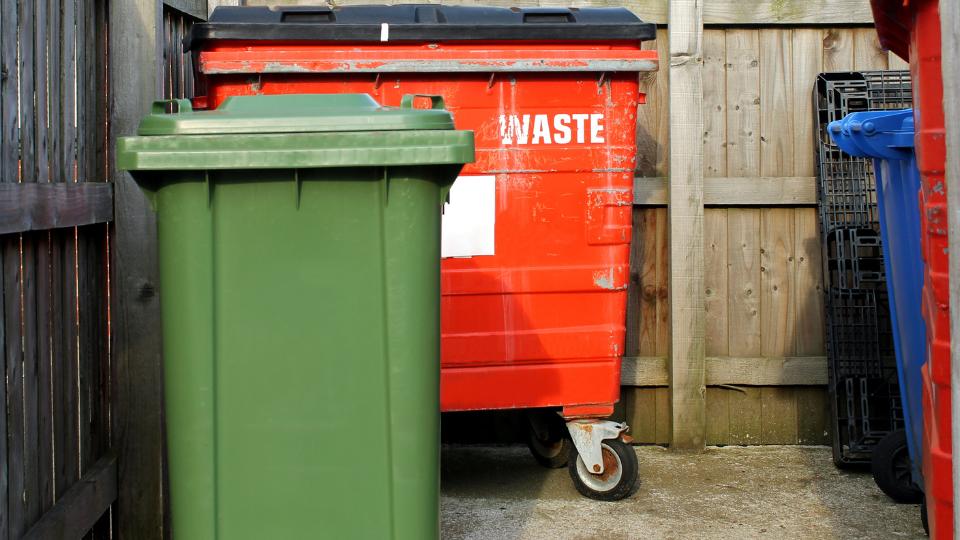
Commercial waste is an unavoidable part of business operations. When you have a physical business location, you’ll inevitably generate rubbish and will need to dispose of it.
But understanding what your responsibilities are can be quite confusing which is why we have written this easily digestible guide to answer all your questions.
This guide discusses what exactly is commercial waste, how each type is disposed of, and what the laws and regulations are.
Table of contents
- What is classed as commercial waste?
- How is commercial waste disposed of?
- What are the UK commercial waste regulations?
- How do I arrange for business waste collections?
- Commercial Waste Facts and Statistics
What is classed as commercial waste?
Commercial waste is any rubbish generated by business activity. This includes general (non-recyclable) waste, mixed recycling, food, glass, confidential waste, clinical waste, and hazardous waste.
The difference between household waste and business waste is simply where and how the rubbish is produced.
The waste can be exactly the same (plastic water bottles for instance), but if it was caused through commercial activity then it’s business waste, if it was generated in a household it’s not.
How is commercial waste disposed of?
Each type of commercial waste is disposed of in a different way after it is collected from your business premises.
How to store the waste whilst you wait for it to be picked up is also different depending on the waste type.
Here’s how to deal with each form of commercial waste:
General waste
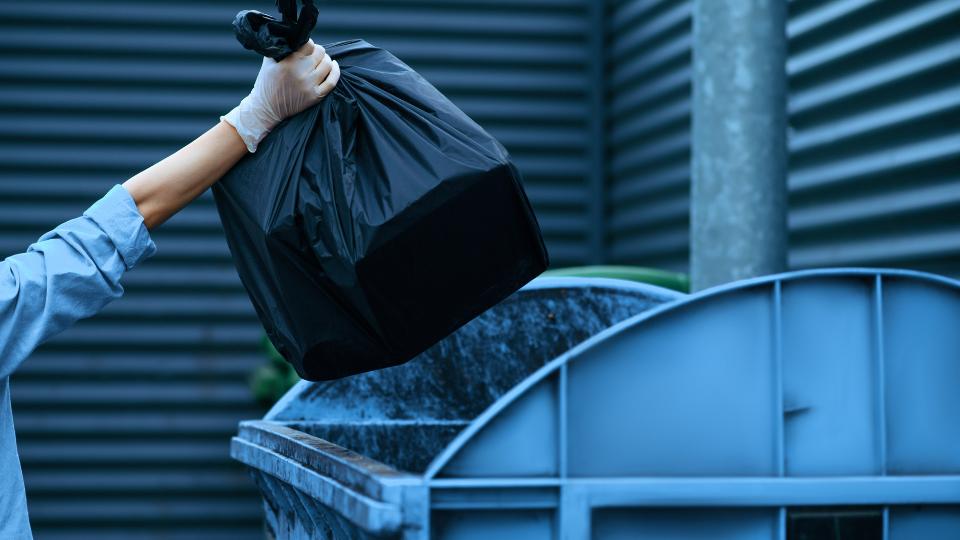
General waste should be placed into black bin bags and then into your general waste wheelie bins.
Then on your scheduled collection days, your commercial waste collector will empty the contents of your bins and take the waste off to a treatment facility where they will attempt to recover any recyclable material before sending it off to landfill or incineration.
We all need to play our part in reducing how much general waste we throw away and separate out any recyclable material beforehand to ensure as little ends up in landfills as possible.
Dry Mixed Recycling (DMR)
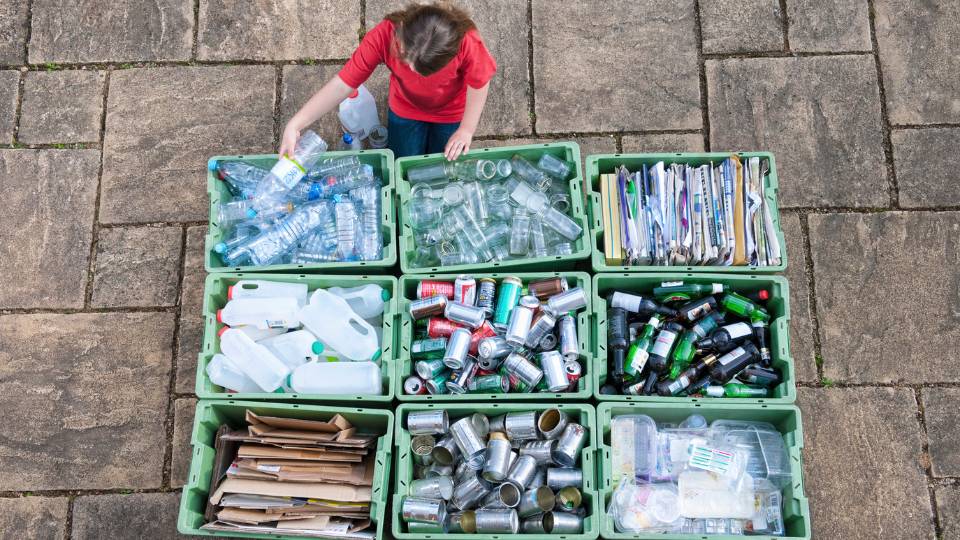
Dry Mixed Recycling includes paper, cardboard, plastic, aluminium, and cartons. This waste needs to be placed directly into a dedicated wheelie bin without bagging it up first.
It’s also important to keep this waste dry and free from contaminants like food and drink, so rinse out any residue first.
On collection day, your waste collector will empty the bin and transport it to a treatment facility where it’ll be sorted by material type and undergo the appropriate recycling process.
Food waste
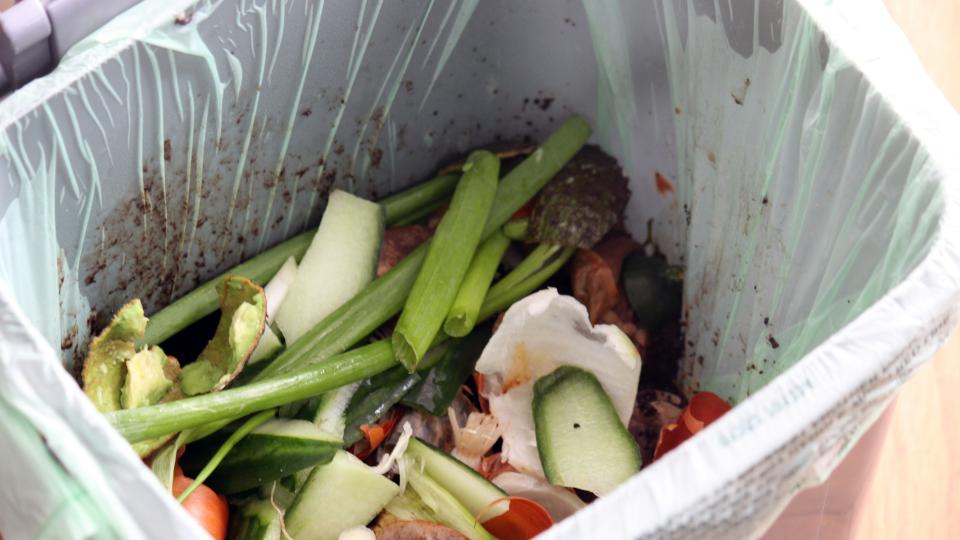
Food waste should be bagged up in clear plastic biodegradable bags and placed into a dedicated wheelie bin.
This waste is then collected by your waste management company and taken to a food waste-to-energy facility where it’s turned into biofuel and fertiliser through a process called anaerobic digestion.
Glass waste
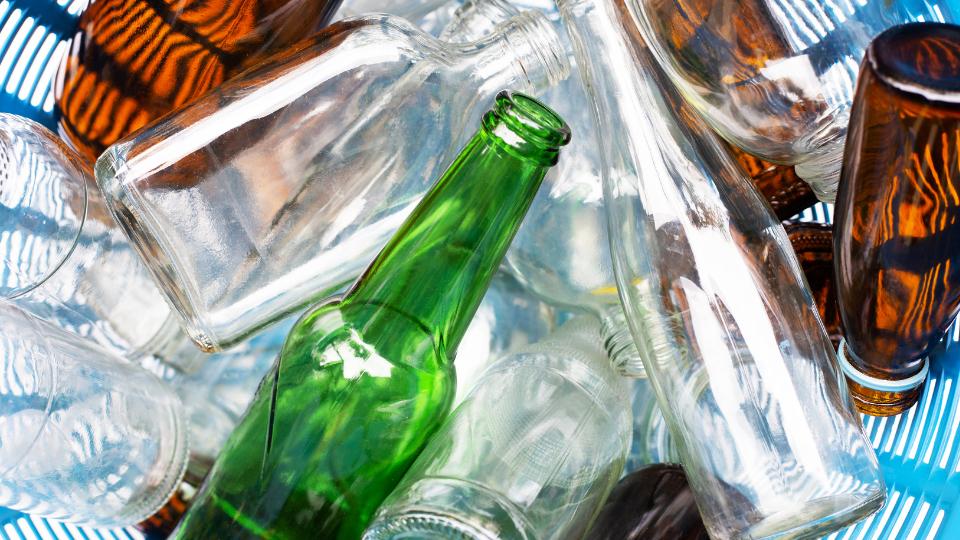
Glass waste like bottles and jars of any colour can be placed directly into a dedicated wheelie bin without the need for any plastic bin bags.
The glass waste is then emptied on collection day by your waste collector and taken to a facility for it to be cleaned, crushed, melted and moulded into new glass products.
Confidential waste
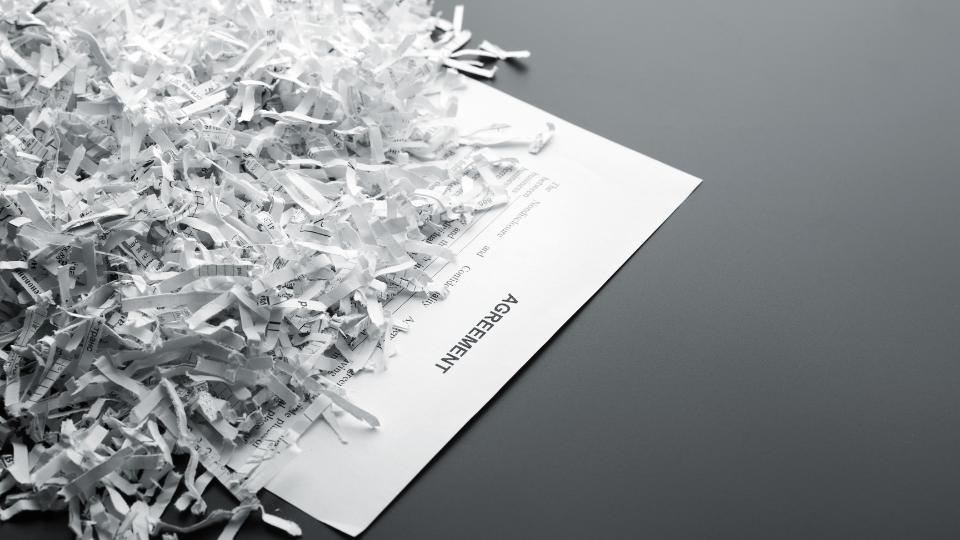
Confidential waste can either be shredded immediately at your premises with your own shredder and placed into your confidential waste bin or can be put into a lockable container to be shredded by your collector (either on-site in their van for peace of mind) or at their shredding facility.
This waste is usually paper so it can then be recycled.
Clinical waste
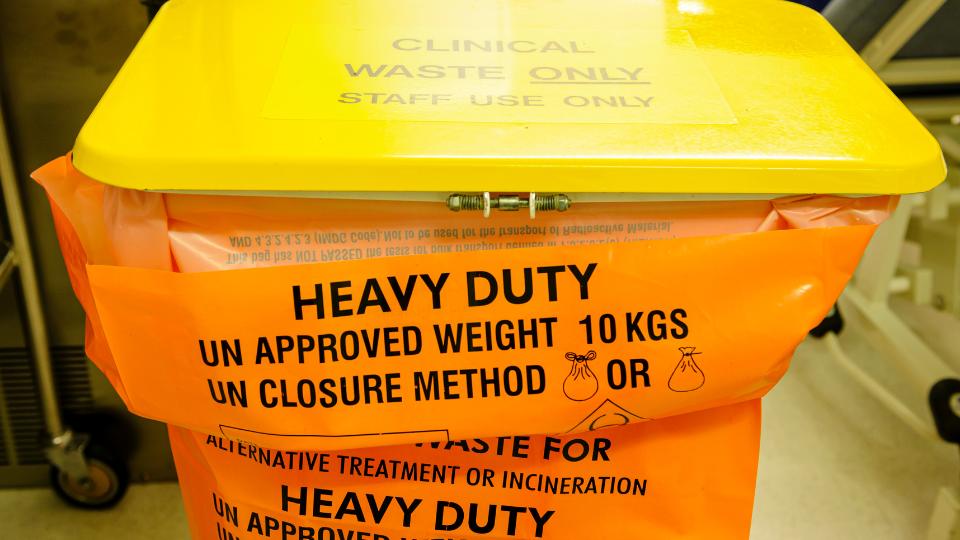
Clinical waste is a complex type of commercial waste which requires different disposal methods depending on its sub-type.
Infectious waste such as used bandages, swabs and PPE are put into orange or yellow bags and are taken to be incinerated by your waste collector.
Whereas, Sharps, for instance, need to go into a lockable container and are then typically sent off to undergo an irradiative process where any dangerous substances on the sharps are removed and they can be recycled.
Read our guide on each type of clinical waste disposal method here.
Hazardous waste
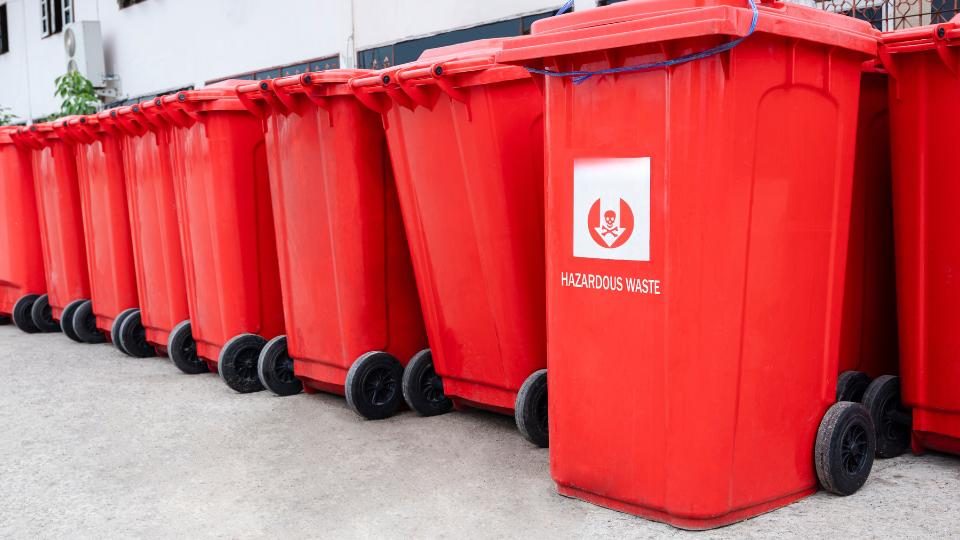
Hazardous waste is also a complex type of commercial waste and its disposal largely depends on the specific type of waste it is.
Read our guide on hazardous waste disposal for more information.
What are the UK commercial waste regulations?
Environmental Protection Act 1990
- Sets out the duty of care for waste, requiring anyone involved in the handling of waste to keep it safe, ensure it’s dealt with responsibly, and only transferred to those authorised to handle it with wast transfer notes (WTNs).
Waste (England and Wales) Regulations 2011
- Introduces the waste hierarchy into law, requiring businesses to take all reasonable steps to apply the hierarchy as a priority order in waste prevention, preparing for re-use, recycling, recovery, and disposal.
The Hazardous Waste (England and Wales) Regulations 2005 (as amended)
- Sets out the control regime for hazardous waste from production to disposal, including classification, segregation, and the consignment note procedure.
The Environment Act 2021
- Introduces new powers to enforce environmental protections and waste management, including measures to tackle waste crime, enforce the waste hierarchy, and impose extended producer responsibility schemes.
How do I arrange for business waste collections?
It’s a legal responsibility for UK businesses to either have a waste carrier license to transport waste to treatment facilities for disposal or to use the services of an authorised waste management company.
Almost all businesses choose the second option.
To get your business waste collected by a waste management company you’ll need to provide your contact information to them and discuss your requirements with them.
Their sales teams will ask what kind of business you’re running and what kind of waste you’ll be producing and then provide a quote for your collection services – advising on the most suitable bins and collection frequencies.
To get a quote from us simply call 0120 533 8123 or use our online quote form.
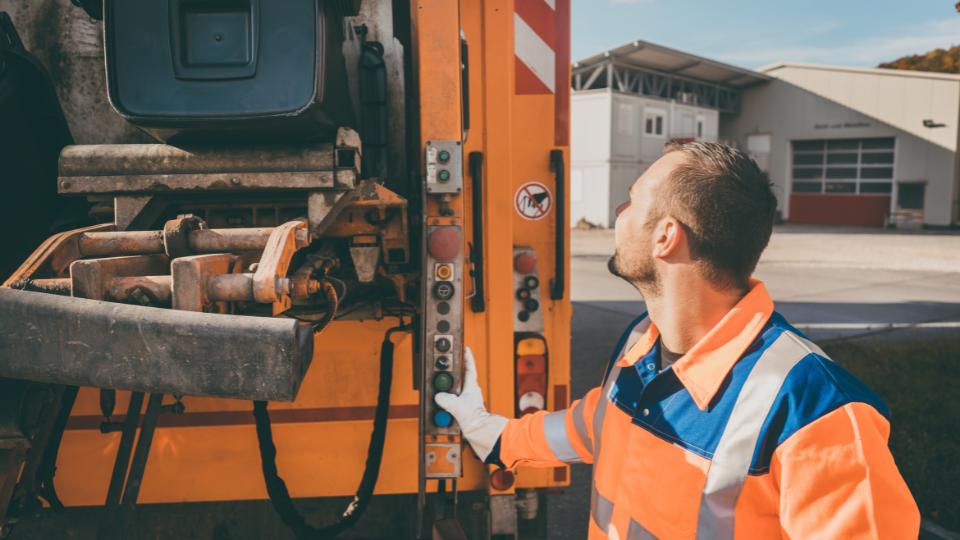
Commercial Waste Facts and Statistics
- The UK generated around 282.5 million tonnes of commercial waste in 2021
- Of this waste, 44.6% was recycled, 26.2% was composted, and 29.2% was sent to landfill
- The UK government has set a target of 50% recycling rate by 2025.
- 84% of commercial waste in the UK is generated by England alone!

